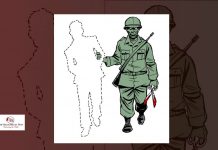On 15th of August, the news of Taliban takeover of Kabul and Afghan President’s unexpected escape astonished the entire world. The sudden change startled the Afghan nation who are rightly frightened about their future and hard-earned freedom.
Thousands of Afghans ran to the airport to escape the Taliban’s wrath by fleeing the country. Some desperate Afghans were seen on tv hanging to the American military plane, and several died in the process.
As the foreign powers rushed to rescue their citizens and their local colleagues, the crowds at the Kabul airport kept growing. The fears of everybody and the predictions of intelligence agencies of possible terrorist attacks unfolded into reality and hundreds including at least 13 US servicemen died in multiple attacks on 26th August 2021.
However, the regional analysts believe the events of last few days are only the beginning of what the Afghan people, particularly women, and the region have to suffer in the coming months and years.
Though the Taliban have claimed to announce general amnesty andh have promised that women and human rights will be respected but in accordance to the Sharia law, which is concerning? Do Taliban plan to impose same rules they had in 1990s? Those rules did not allow women to step outside of their homes, adultery was punished with stoning to death and forced marriages were rampant.
The implications of Taliban rule in Afghanistan will have implications not only for women but everyone. The repercussions of this sudden and surprised change will also impact the regional stakeholders, more particularly Balochistan and its people.
Afghan land has always been hosting Baloch people and similarly Balochistan has been home to Afghan refugees for decades.
Taliban’s takeover like the previous one, will once again bring hundreds of thousands of Afghans to Balochistan. However, this in fact can also modify the demographics of the region as Baloch political parties allege that the Afghan influx in past has been used by the state as a tactic to turn Baloch a minority on its own land. In past instead of a proper mechanism, the refugees have been left in Balochistan without any proper paperwork for years before they are given citizenship through illegal means.
On other hand, Baloch political figures and displaced people, due to the ongoing war between Baloch pro-independence forces and Pakistani state, can also suffer difficulties in seeking refuge in Afghanistan, which has historically been welcoming to them.
Many perceive Taliban/Mujahideen’s previous takeover of Afghanistan as a reason for the failure of preceding Baloch insurgency. The Baloch political leadership had to negotiate with Pakistani state and return to Balochistan after the fall of socialist Afghan government in 1990s.
However, things are a lot different this time. The submission of current Baloch armed leadership seems almost impossible. In fact, the recent attacks by Baloch armed groups in Balochistan, and more particularly targeting of Chinese engineers in Gwadar, is considered by many as a message and an indication of a continued war in the region.
Taliban have captured a huge amount of US arms and ammunitions in Afghanistan. It is very likely that a large portion of these weapons will end up in the black market, where the Baloch insurgents are believed to acquire their armaments from. This flow of sophisticated modern arms will indisputably have substantial impacts on the armed insurgency in Balochistan.
It is only a matter of time before we see the impacts of these changes in the region. However, it is certain there will be major impacts for all the stakeholders.






























